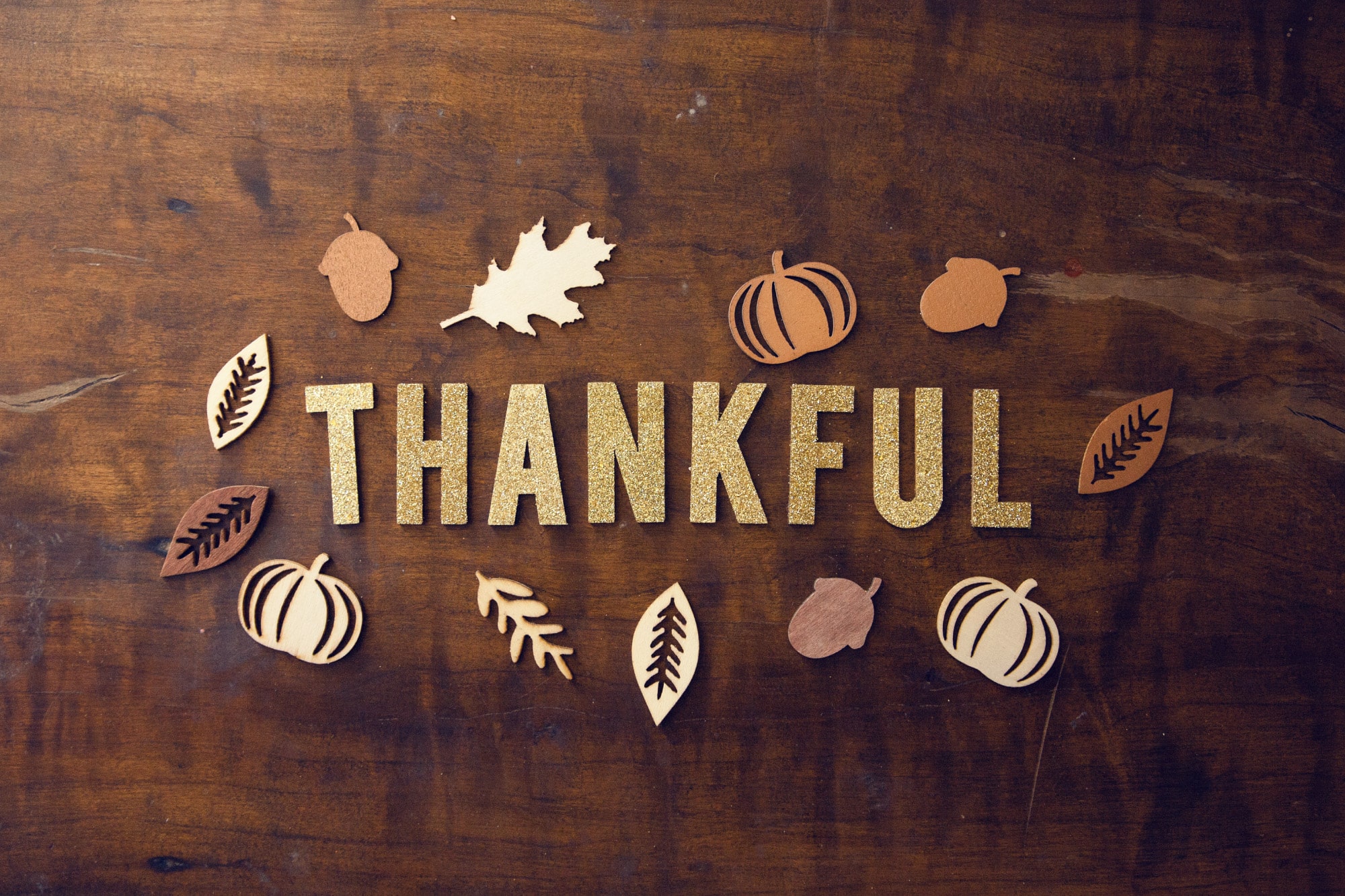By Anna McKenzie
It’s natural that Thanksgiving inspires an attitude of thankfulness. But can this attitude actually improve our well-being? What is the longstanding effect of gratitude on our emotional and mental health, and is it significant? Is it worth practicing gratitude throughout the year versus just the holiday season?
It’s important to remember that our physical, mental, emotional, and spiritual health exist on a spectrum. When one is affected, the others are, too. When we are depressed, we experience sadness, negative thinking, physical fatigue, and even spiritual numbness. When we are happy and healthy, we experience satisfaction, positive thinking, more energy, and spiritual connectedness. Some elements of deficient health are clinical, requiring medical or therapeutic intervention, and some elements are affected by our own sense of well-being. Gratitude restores and increases the value we ascribe to our lives.

This has been proven in research. Harvard Health Publishing reports that in a study conducted by two psychologists, participants who wrote down what they were grateful for on a regular basis were more optimistic about their lives. These individuals also showed better physical health and had fewer doctors’ visits than a comparison group who wrote about what irritated them on a regular basis. Additionally, study findings published in Greater Good Magazine revealed that in a similar analysis of writing about gratitude, “It was only when people used fewer negative emotion words in their letters that they were significantly more likely to report better mental health. In fact, it was the lack of negative emotion words — not the abundance of positive words — that explained the mental health gap between the gratitude writing group and the other writing group.”
These studies, among others, indicate that turning away from negativity puts us in a position to embrace what is good in our lives. Gratitude is a practice that allows us to do that.
What Does Gratitude Look Like?
Gratitude is about intentionally feeling or expressing your appreciation for someone or something. It means having a positive response, being thankful, and extending graciousness. It can also mean adapting an “abundance mindset,” where you think about the plentiful nature of what you have instead of dwelling on what you don’t have.
It’s easy to think about what we need or desire versus what we already have. We think we will be happier when we experience or possess something in particular; and yet, there are plenty of people in the world who have exactly what we want and they are not happy. There are also people who have less than we do who are somehow happier than we are. What accounts for this difference?
When it comes to mental health, a study published in World Psychiatry says that “quality of life” can be defined as the difference between what we expect and what we achieve. Satisfaction improves when the gap is small. That means managing our expectations well and appreciating what we have already gained. We also tend to be subjective in judging the state of our lives, often taking more extreme viewpoints on our well-being than others would. “A depressed patient will usually see his/her well-being, social functioning, and living conditions as worse than they appear to an independent observer,” says the study. Conversely, a person with an optimistic view may see things as better than they actually are, making him or her happier regardless of the circumstance.
When we turn our minds toward what we’ve gained, the gap between what we have and what we expect to have becomes significantly smaller.
Gratitude puts us in a frame of mind that improves our satisfaction. When we turn our minds toward what we’ve gained, the gap between what we have and what we expect to have becomes significantly smaller.
Four Ways to Express Your Gratitude This Season
What are some ways that you can express your gratitude and improve your outlook this season (or year-round, for that matter)? Here are several you can try:
Write down what you’re grateful for each day. As shown with the individuals in the study, only a few sentences each day (or each week!) can generate an improvement in your sense of well-being.
Volunteer to help others. When we set aside our own needs and desires to help others, we turn from focusing on ourselves (which can increase our negativity) and actively improve the lives of others. We can express appreciation, receive appreciation, and share the motivational boost that comes from being generous with our time and energy.
Express your appreciation of someone else. The act of appreciating someone’s work or character does not have to be formal or sentimental. In fact, our relationships can be significantly improved when appreciation is freely and generously exchanged. It costs us nothing to express our gratitude for others, whether they drove us to the airport, got us a cup of coffee, or stood by us during a tough time. And it often has a reciprocal effect that leads them to express their gratitude as well.
Be conscious of your thinking. When negative thought spirals get triggered, they can be upon us in full force without warning. When you’re conscious of the negative thoughts that float through your mind throughout the day, you can gently turn them away or alter them to something brighter. It’s not about being delusional — if you’ve sprained your ankle, positive thoughts are not going to help you walk any better — but it’s about catching your extreme thinking before it destroys your positive mindset. “Now I’ll be stuck at home all day,” can be turned to, “Now I can relax and watch my favorite movie.”
Gratitude may not always be easy for us, but it certainly doesn’t hurt — and it can considerably improve the way we view ourselves and the world.
Try one or more of these things for a seven-day period and see if your mood improves. You may feel enough of a boost that you decide to continue practicing gratitude year-round. Gratitude may not always be easy for us, but it certainly doesn’t hurt — and it can considerably improve the way we view ourselves and the world.
Help for Emotional and Mental Health Issues at The Meadows
If you or a loved one is experiencing severe mental or emotional health issues, please get in touch with our team today. The Meadows provides treatment for emotional issues, mental health conditions, trauma, and addiction through research-backed modalities and therapeutic interventions. Through our evidence-based inpatient and outpatient treatment programs, we can help you find the path to healing and long-term recovery.

